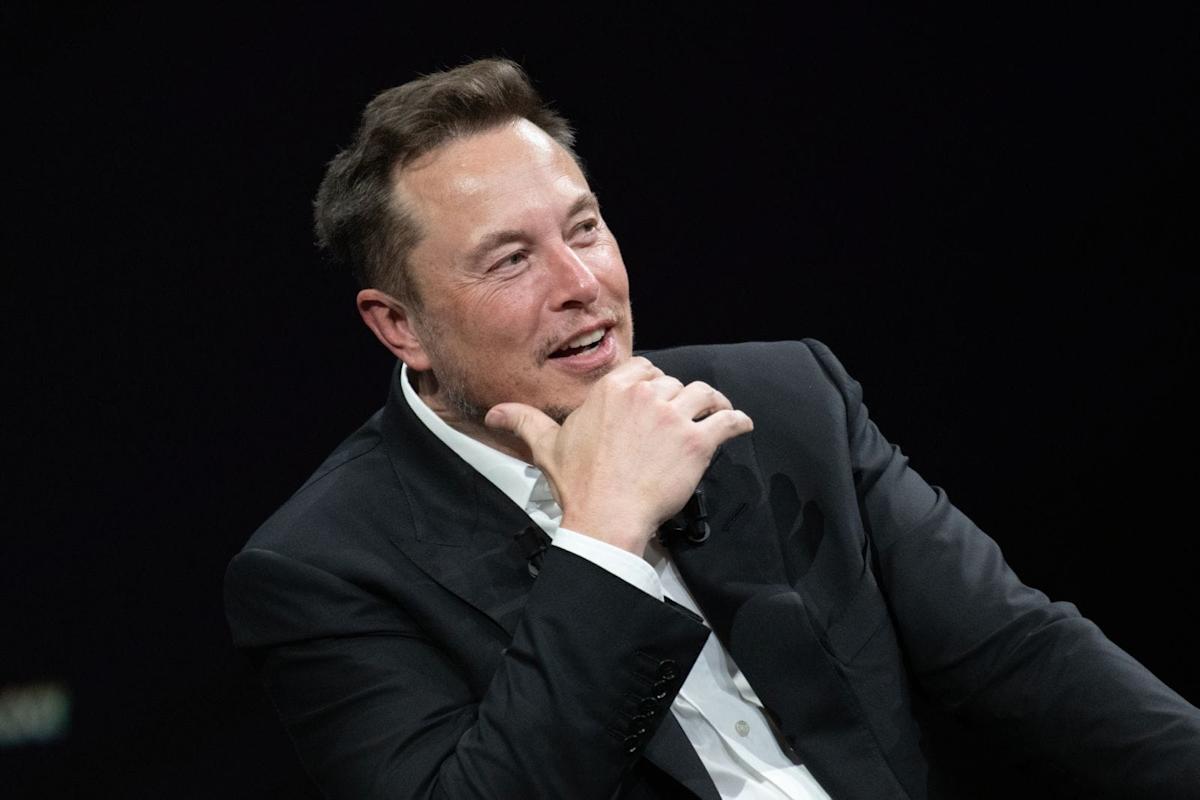Elon Musk has built companies that reshaped entire industries — from Tesla’s (TSLA) electric vehicle (EV) systems to SpaceX’s reusable rockets and now xAI’s ambitious supercomputer development. But his latest prediction about the future of work is one of his most disruptive yet.
In a high-profile conversation with U.K. Prime Minister Rishi Sunak, Musk argued that artificial intelligence (AI) is advancing so quickly that many traditional jobs — including highly technical roles like coding — may not exist in the future.
“There will come a point where no job is needed,” he said. “You can have a job if you want for personal satisfaction, but the AI will be able to do everything.”
While the comment sparked debate, it aligns with the fundamental shift happening in AI today. Massive compute clusters powered by NVIDIA (NVDA) GPUs, hyperscale cloud platforms run by Amazon (AMZN) and Google (GOOG) (GOOGL), and xAI’s own training runs point toward a world where machines don’t just assist with work, they complete it.
And in that world, Musk says the most valuable skill isn’t learning to code. It’s learning to think.
At the U.K.’s AI Safety Summit, Musk called artificial intelligence “the most disruptive force in history,” noting that it will replace both physical and cognitive labor at unprecedented speed.
AI systems can already write production-grade code, design hardware, plan logistics, generate legal drafts, and analyze markets. Tools like Microsoft (MSFT) Copilot, Google’s Gemini, Meta (META) AI inside WhatsApp and Instagram, and open-source models integrated into Tesla’s Full Self-Driving (FSD) systems show just how far automation has come.
In this environment, the scarce skill isn’t execution, because AI handles that. The scarce skill is direction. It’s the ability to define a problem, imagine a solution, judge tradeoffs, understand human context, and use AI as a collaborative partner.
Education systems have spent decades teaching technical skills. Musk says the future belongs to people who can combine those technical tools with creativity, strategic insight, and ethical reasoning.
So while coding used to be the differentiator, now it’s the baseline.
If Musk is right, the next decade will reward companies that rethink entire industries using AI. These funds capture broad AI-driven upside without betting on a single winner:
A world where work is optional implies higher automation across every industry. This theme is captured by real, revenue-based ETFs like:
Both ETFs invest in companies generating measurable revenue from automation, not speculative future bets.
If AI can perform most technically demanding tasks — and do them flawlessly — the strongest companies will be those that do one of the following:
-
Build or supply the compute behind AI
-
Create tools that enhance human–AI collaboration
-
Operate in sectors where AI supercharges productivity rather than replaces it
This is where investors should focus.
In particular, AI infrastructure remains the foundation, as training frontier models requires enormous computing power.
Musk said xAI needs thousands of high-end GPUs, underscoring demand for firms like NVIDIA and Advanced Micro Devices (AMD), the undisputed leaders in AI GPUs, and Super Micro Computer (SMCI), responsible for the server and rack systems behind AI data centers.
As long as AI keeps advancing, these companies remain critical.
And if the future job revolves around directing AI, then the platforms enabling that interaction also become central.
-
Microsoft embeds AI natively across Office and Windows
-
Google integrates Gemini into Workspace and Android
-
Meta pushes AI assistants into its messaging and social ecosystem
Musk has repeatedly warned that advanced AI introduces serious cyber risks. As industries adopt AI, the need to secure data and identity grows.
Companies already leading this space include:
Unlike automation, cybersecurity demand rises because of AI, not despite it.
The more AI can do, the more valuable human judgement becomes. If Musk’s prediction is accurate, the most successful workers will be those who understand what to build and why, not just how. Likewise, the most successful companies will be those that integrate AI to amplify human potential rather than simply cut costs.
Similarly, the most successful investors will be those who position themselves in industries that benefit directly from this transformation: infrastructure, platforms, automation, and security.
AI may do the work, but humans will still provide the purpose. And in Musk’s vision of the future, that’s the job that matters most.
On the date of publication, Barchart Insights did not have (either directly or indirectly) positions in any of the securities mentioned in this article. All information and data in this article is solely for informational purposes. This article was originally published on Barchart.com



Leave a Comment
Your email address will not be published. Required fields are marked *